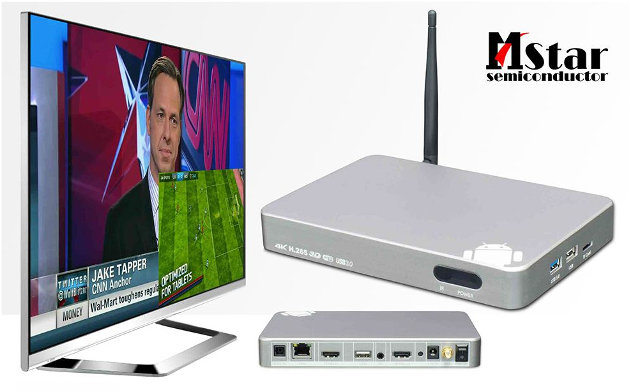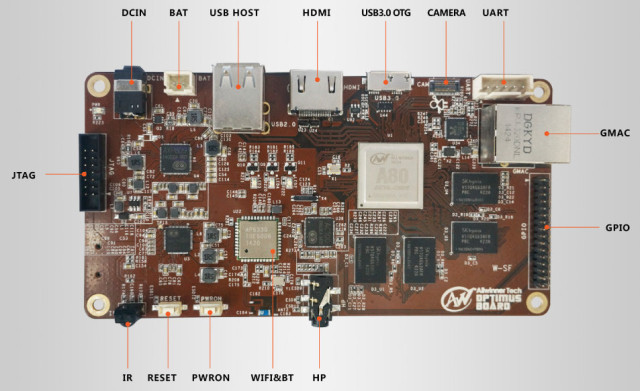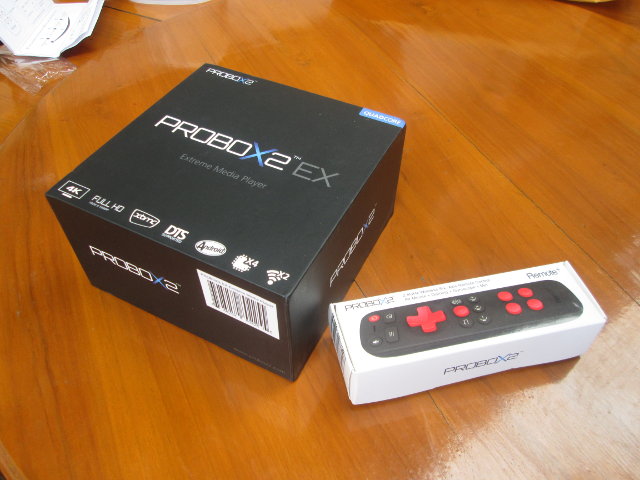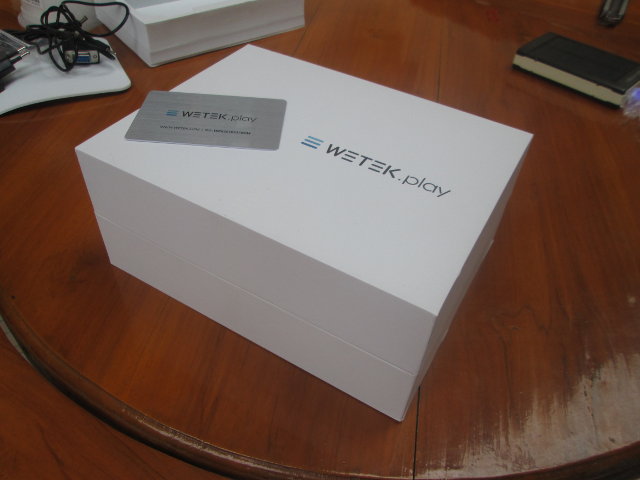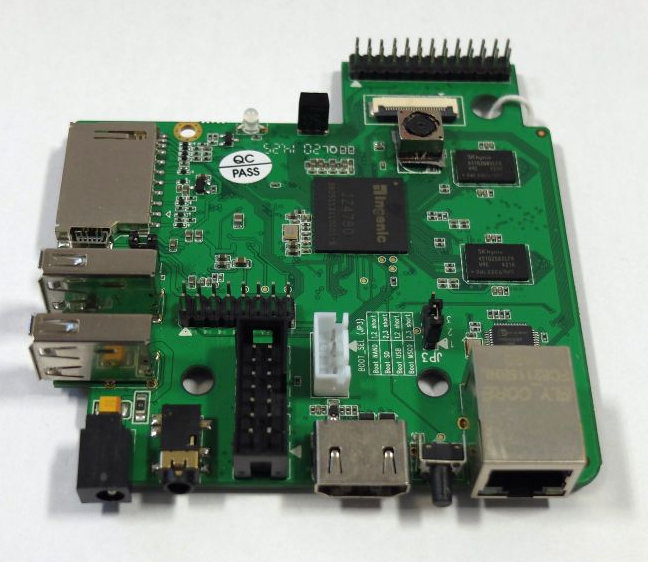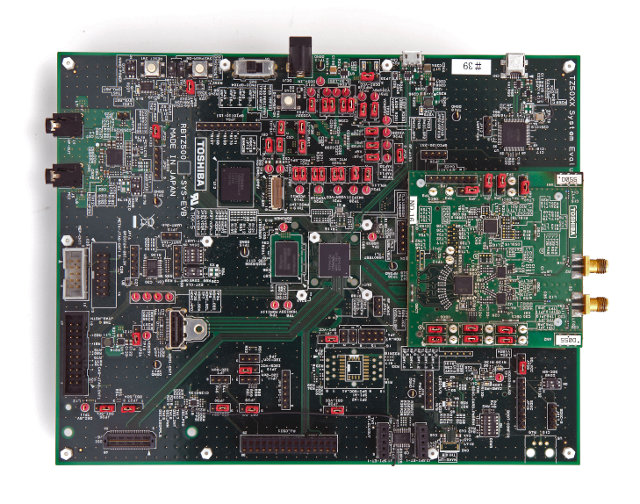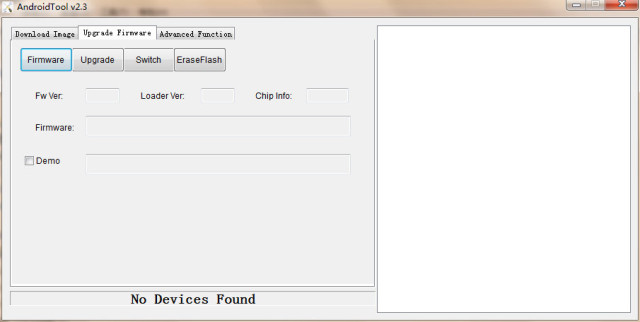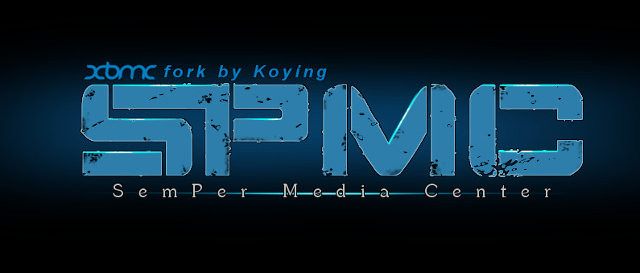Shenzhen UyeSee Technology, a company specializing in audio / video products, has announced UyeSee T1H Android TV box powered by Mstar MSO9810 quad core processor, with 1 to 2GB RAM, 8 to 32GB eMMC flash, and featuring high speed ports such as Gigabit Ethernet and USB 3.0, as well as HDMI In supporting PiP (Picture-in-Picture) thanks to the dual decoder found in the processor. T1H is not the first Mstar 9810 STB I mention here, as Kaiboer already has a few models with Q5, Q6, and F5, but the latter focuses on the Chinese market, whereas Uyesee plans to expand to oversea markets, and the firmware is available in English, and other languages supported by Android, too. UyeSee T1H specifications: SoC – Mstar MSO9180 quad core ARM Cortex A9 @ 1.5GHz with a quad-core ARM Mali-450 MP2 GPU @ 500MHz. System Memory – 1GB to 2GB DDR3 @ 1866MHz? Storage […]
AllWinner A80 OptimusBoard Octa-core big.LITTLE Development Board is Now Available … for $169
A80 OptimusBoard powered by AllWinner A80 octa-core processor with four Cortex A15 and four Cortex A7 in big.LITTLE configuration had been announced at the end of 2013, and after numerous delays, several boards have recently been sent to developers and companies such as miniNodes, Linuxium, and others. The company behind the board is actually Shenzhen Merrii Technology (aka WITS), which had done all earlier development kits for AllWinner, and they’ve now made the board available for purchase on Aliexpress. Unfortunately the company has decided to leave to low cost development boards market to the likes of Cubieboard8 and PCDuino8, as A80 OptimusBoard sells for $345 plus about $30 for shipping by courier.[Update: they now offer it for $169] SoC – AllWinner Ultra Core A80 4x Cortex 15, 4x Cortex A7 big.LITTLE processor with Imagination Technologies PowerVR GC6230 GPU with 64-cores, and support for OpenGL ES 1.1/2.0/3.0, Directx 9.3 System Memory […]
Probox2 EX Android TV Box and Remote+ Unboxing
W2COMP sent me their Probox2 EX Android TV Box (click link for full specs) powered by Amlogic S802-H processor with DTS and Dolby hardware decoding, 2GB RAM, 16GB eMMC, and the usual USB ports, and wired and wireless connectivity. Probox2 EX is a direct competitor to MINIX NEO X8-H with similar features, and it also comes with an air mouse called Remote+ with gaming and voice control functions. Today, I’ll post some pictures, and videos about the device and its internal, following by a full review sometimes next week. Probox2 EX Unboxing I’ve received not one, but two boxes in the package I received via Fedex. The first package contains Probox2 EX Android media player, and the smaller one Probox2 Remote+ air mouse. The device comes with a few accessories including a 5V/2A power supply, HDMI and AV cables, an external Wi-Fi antenna, a micro USB to USB cable, an […]
Unboxing of WeTek Play DVB-S2 Android / Linux STB
WeTek Electronics, a company based in Hong Kong, has sent me an Android TV powered by Amlogic AML8726-MX dual core Cortex A9 processor. Nothing new here, but I was very very interested in reviewing it because it includes a DVB-S2 tuner, and on top of their stock Android firmware, the company provides various Android and Linux firmware files such as CyanogenMod, ParanoidAndroid, OpenELEC, Linux with Enlightenment desktop environment, Lubuntu 14.04 and so on. Today, I’ll list the hardware specifications of the device, show some unboxing pictures and video, and as usual, open the device to see what’s inside. I’ll provide a full review in one or two more posts. WeTek Play Specifications Apart from the DVB-S2 tuner are the serial port, the hardware specifications sound familiar: SoC – Amlogic AML8726-MX dual core Cortex A9 @ 1.5GHz with Mali-400MP GPU System Memory – 1GB DDR3 Storage – 4 GB NAND flash […]
MIPS Creator CI20 Development Board Powered by Ingenic JZ4780 SoC
There are plenty of ARM based development boards running Linux and Android, but with MIPS it’s a different story. Microchip does have some affordable development board powered by their MIPS MCUs, but these don’t have the hardware specs to run Linux based operating systems, and Ingenic Newton Platform for wearables can run Android and Linux, but it appears to be reversed to companies with virtual no documentation. There are some MIPS platform running OpenWRT on hardware such as routers or Wi-Fi boards, but these can’t be considered fully supported development boards. But Imagination Technologies is trying to make MIPS more relevant, first by launching Prpl developers’ community, and MIPS Creator CI20 development board powered by Ingenic JZ4780 dual core MIPS32 (Xburst) core processor with PowerVR SGX540 GPU should soon be available with complete documentation and source code. Let’s go through the hardware specifications first: SoC – Ingenic JZ4780 dual core […]
Toshiba TZ5000 ApP Lite Media Player Development Kits Run Android 4.4 and Ubuntu Linux
Toshiba has recently announced two development kits powered by their TZ5000 ApP Lite SoC featuring two ARM Cortex A9 cores, PowerVR SGX540 GPU, PowerVR VXD395 GPU, an optional 4GB MLC NAND, and Ensigma C4500 Wi-Fi baseband engine into a single chip solution that targets Over-The-Top (OTT) tuners and IP media boxes, wearable devices, digital signage, thin clients, and more. The first development kit, RBTZ5000-6MA-A1, is a full size board that supports Ubuntu, the other one, RBTZ5000-6MA-A1, is an HDMI stick form factor board running Android 4.4. Toshiba RBTZ5000-2MA-A1 Board (Ubuntu) RBTZ5000-2MA-A1 Starter Kit specifications: SoC – Toshiba TZ5011XBG dual core Cortex A9 processor @ 1.0 GHz with PowerVR VPU and GPU, and Ensigma C4500 Wi-Fi baseband engine System Memory – DDR3L-1600 Storage – 8GB eMMC (external) + MicroSDXC Connectivity – Wi-Fi 802.11a/b/g/n/ac 2×2 MIMO (via Ensigma C4500), Bluetooth 4.0. Ethernet is available via a daughter board connected to ADB. USB […]
How to Upgrade Firmware in Rockchip RK3288, RK3328, RK3399 Android TV Boxes
For some reasons, Rockchip is extremely fond of Windows based firmware tools, and instead of providing a simple SD card method, they’ve continued to use these awful tools to upgrade firmware for Rockchip RK3288, RK3328, RK3399 devices, and other Rockchip based TV boxes. I don’t mean to say these are useless, but they should not be used by end users, unless their device is bricked. Nevertheless, Rockchip has now release version 2.3 of their Android tools for Windows, and GeekBuying has published a guide showing how to do, which I’ll summarize below. Rockchip has also released an updated version for the Linux Upgrade Tool (upgrade_tool) v1.24 that allows you to do the update in Linux. [Update: The latest versions of DriverAssistant (Step 1) and AndroidTool (Step 2) can be found in Rockchip-Linux account in Github] The first thing to do is to make sure you’ve got the latest Rockchip USB […]
SPMC is a Fork of XBMC Available on Google Play Store, Amazon AppStore
XBMC 13, released a few months ago, is the first official release to support hardware video decoding on many ARM based Android devices. However, although both XBMC Android apks for ARM and x86 can be downloaded from xbmc.org, Team-XBMC have decided not to publish XBMC for Android on app stores such as Google Play, partially because video hardware decoding is not yet fully working on all popular Android SoC platforms and devices, but also because of the upcoming name change from XBMC to Kodi. Since the code is open source under GPLv2, anybody can build it, and somebody published XBMC on Android as a paid app, which would have been legal if they changed the name, but as they used XBMC trademark, it has been removed since then. Seeing this, Chris Browet (Koying), one of XBMC developer, decided to fork XBMC, apply some patches not yet approved in mainline XBMC, […]


